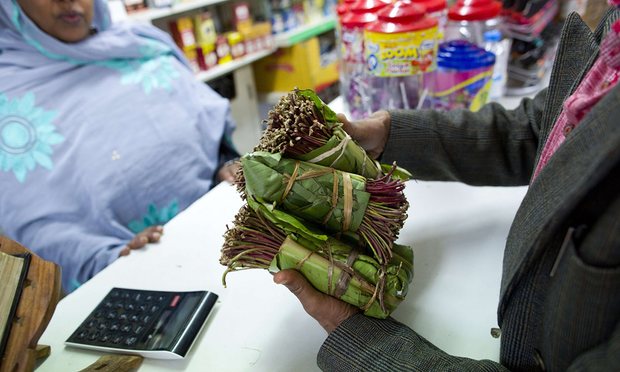Somalia suspends khat imports from Kenya

Somalia will bar flights transporting the stimulant leaf, khat from Kenya with effect from tomorrow, a move that could deal a blow to Kenya’s access to the last major foreign market following a ban of the product in Europe 2014.
During an interview with VOA Somali, Transport Minister Ali Ahmed Jama said order had been issued to civil aviation authority to suspend any flights transport khat from Kenya with effect from Tuesday.
“We have temporarily suspended flights carrying khat from Kenya until further notice,” the minister said without giving details on time frame and motive behind the decision.
It is not clear how long the suspension which comes barely a week to the IGAD heads of states and governments summit in Mogadishu will stand even as traders raise alarm on the impact the suspension will have on their livelihoods.
A khat trader who is largely involved in the imports told Goobjoog News they received a memo Monday informing them no khat flights will access the country’s airspace from Tuesday.
“We got the memo from the civil aviation director this morning instructing us that this was going to be the last batch of khat we were receiving from Kenya until further notice. We have since written to the Minister, Prime Minister and the President to seek intervention regarding the suspension,” the trader said on condition of anonymity.
He said they had also communicated with the Kenyan government to engage with Somalia over the matter.
Somalia has on several occasions announced it was putting into place measures to rid the country of the product which has been blamed for its addiction and family conflicts. However traders have also cited economic benefits noting the khat sector has over the years become a considerable income earner for most families.
A governor from Kenya’s khat exporting region, Meru announced in July he had convinced the Somaliland government to secure favourable tariff rates for khat from Kenya which he said was being taxed up to 300% compared to the same product from Ethiopia which received preferential tariffs from the break-away region.